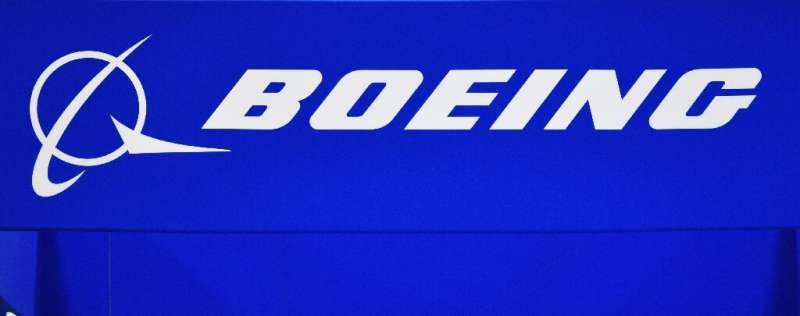Battered by pandemic, Boeing cutting 30,000 jobs in two years

Pressured by a prolonged commercial travel downturn and the hit from the 737 MAX crisis, Boeing on Wednesday announced an additional 7,000 job cuts that will lower headcount by 30,000 positions over two years.
The planemaker, which has been in belt-tightening mode throughout 2020 in the wake of the coronavirus on top of the 737 MAX's protracted grounding, reported another quarterly loss and said it will shrink headcount down to 130,000 at the end of 2021 from 160,000 in January, a drop of nearly 19 percent in less than two years.
"The global pandemic continued to add pressure to our business this quarter, and we're aligning to this new reality by closely managing our liquidity and transforming our enterprise to be sharper, more resilient and more sustainable for the long term," said chief executive Dave Calhoun.
A steep drop in commercial plane travel has prompted airlines to cancel plane orders or defer deliveries, crimping Boeing's revenues.
On top of that, the company's finances have been under pressure due to the grounding since March 2019 of the Boeing 737 MAX, which is nearing regulatory approval to resume service after a lengthy oversight process by air travel authorities.
In the third quarter, Boeing reported a loss of $449 million, compared with profits of $1.2 billion in the year-ago period, as revenues fell 29.2 percent to $14.1 billion.
The latest quarter of red ink takes Boeing's losses for all of 2020 to $3.5 billion.
Smaller market
Calhoun has emphasized that while Boeing faces a difficult medium-term environment, it expects airline demand to eventually return, and the company is well-positioned in the defense and space business, which is steadier than commercial travel.
The latest job cuts come after Boeing previously trimmed production of leading planes due to the downturn in travel. The aviation giant did not announce further reductions on Wednesday.
Calhoun, in an interview with CNBC, said the current production rates are "appropriate" in light of expectations.
"I'm confident that the forecast that we are handing out today is a conservative forecast that we can live to," he said.
Calhoun said the latest spikes in the coronavirus likely mean airlines will garner less travel the rest of the year than they previously expected.
But the Boeing CEO expects a shift in sentiment in the latter half of 2020 due to the vaccine, which "by all accounts seems to be way ahead of where we imagined it would be," Calhoun told CNBC.
By the end of 2020, there will be a "change to psychology with respect to the vaccine," he said. "And then I'm open that the recovery could come sooner rather than later."
Calhoun still expects a full recovery in airline demand to pre-coronavirus levels to take around three years, he said on a conference call with analysts.
He has taken steps in 2020 to bolster the company's cash position since the coronavirus devastated the travel market.
Besides two voluntary layoff programs and involuntary job cuts, these have included suspending dividend payments, trimming commercial plane production and announcing a decision to consolidate manufacturing of the 787 Dreamliner plane to one venue from two in a cost-saving move.
The company has also taken steps to raise cash in the face of the difficult market, undertaking a $25 billion bond offering in the spring that averted the need to take advantage of a US government program that had been established for the company.
Progress on 737 MAX
Boeing said it made "steady progress" to return the MAX to service following the lengthy grounding.
Earlier this month, the top European air safety regulator said it expected that the planes could start flying before the end of the year.
The head of the US Federal Aviation Administration also signaled the plane could soon be cleared, while emphasizing that work still had to be completed before final approval.
"We are getting very close, I believe, to the finish line with respect to certifying the MAX and beginning deliveries," Calhoun told CNBC.
Shares in Boeing finished down 4.6 percent at $148.14.
© 2020 AFP





















